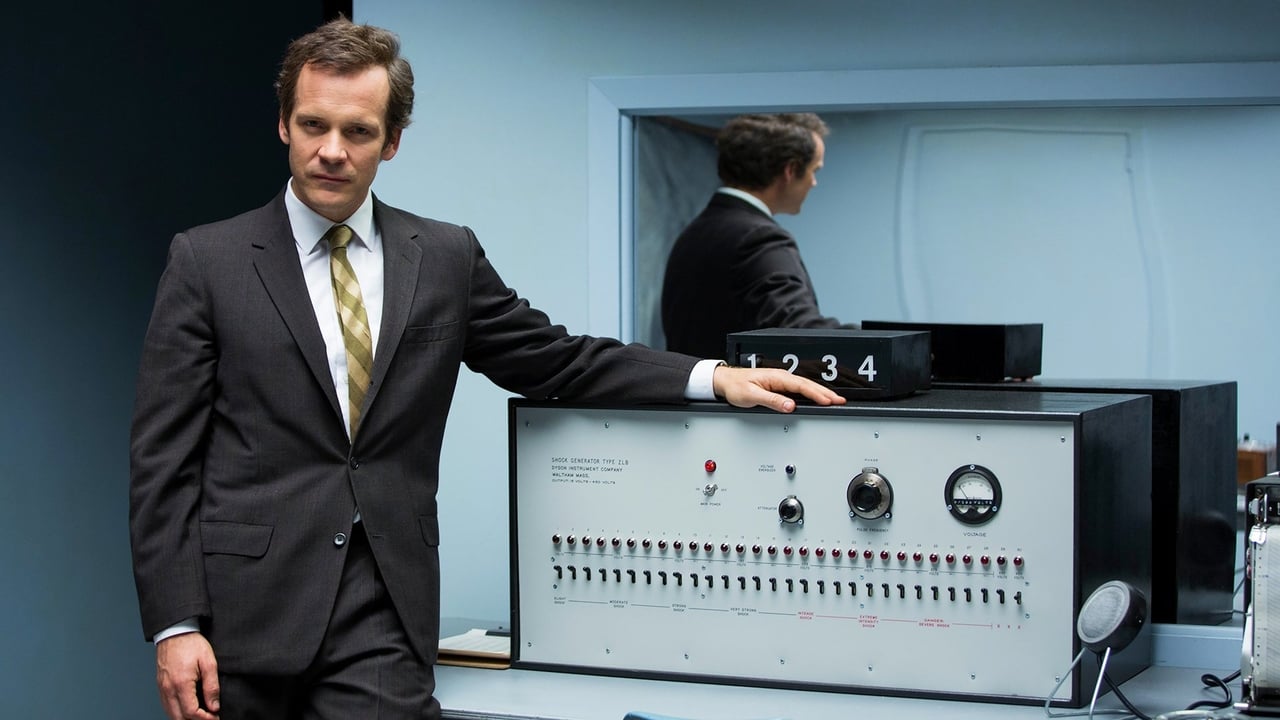

This is a must-see and one of the best documentaries - and films - of this year.
... View MoreIt really made me laugh, but for some moments I was tearing up because I could relate so much.
... View MoreThis movie feels like it was made purely to piss off people who want good shows
... View MoreThis movie tries so hard to be funny, yet it falls flat every time. Just another example of recycled ideas repackaged with women in an attempt to appeal to a certain audience.
... View MoreWhile some people complain this movie is boring, I believe it is a really compelling story and includes very easy-to-understand explanations to Milgram's experiments (which I consider fascinating). It was not meant to be a super original or fast-paced movie, so I don't see how the "boring" adjective is fitting. Its aim was to describe what he had done and how it was interpreted and its impact on society. So yes, I recommend it for whoever is interested in his theories.
... View MoreI watched this at home on Netflix streaming movies. My wife chose to not watch it.Much of the story centers on experiments done in the early 1960s at Yale by a professor of psychology. Peter Sarsgaard portrays that professor, Stanley Milgram. Being Jewish his outlook and studies were highly influenced by the Nazi treatment of Jews before and during WW2. The experiments evolved, but involved paid volunteers who acted as "the teacher" and each communicated by voice only with "the student" in an adjacent booth. Questions were asked and if the student answered improperly the teacher would be required to give him an electrical shock. As incorrect answered continued each shock was at a higher voltage.The test was to see if people would blindly follow instructions even after they heard the student yelling "It hurts, let me out." There never were any electrical shocks, in every case the student was part of the staff conducting the experiments. To Milgram's surprise about 2/3 of the "teachers" kept on following instructions. The obvious parallel are the Germans who executed Jews, often blindly following orders.Milgram received an abundance of criticism, towards lying to the participants and traumatizing them with the thought that they were hurting people. Some would even ask the test monitor in the room, "Please check, he might be dead." But in the end these experiments and others he formulated contributed greatly to the understanding of human psychology. He died at the young age of 51, he was a professor at CUNY.In a good role for her Winona Ryder was his wife, Alexandra 'Sasha' Milgram. In an inside joke at the party where Milgram met his wife she said "I am with Seth Horowitz". Horowitz is Ryder's actual family name.Good movie.
... View MoreIntelligent, challenging, semi-experimental view of psychological scientist Stanley Milgram and his seminal early 60s experiment that proved most people would follow orders that went against all they believe in - and caused them great personal stress - even to the point of believing they were causing bodily harm or death, if they felt it was expected of them and they wouldn't be blamed.Almereyda, long one of our bravest and least conventional film-makers, uses his tendencies to break from traditional storytelling to his advantage here. He breaks our usual illusion of 'reality' in a movie with black and white projections as parts of sets, the main character addressing the camera, sometimes about events that haven't happened yet, and even a (very funny) literal 'elephant in the room'. These playful, Brechtian devices distance us and keep us from emotionally getting lost in the story in the way a traditional Hollywood bio-pic would have us do. But it serves to heighten key intellectual questions about Milgram and his work – which also manipulated reality, and implied a certain artificial distancing between Milgram and the human race.Like a film, Milgram's experiment manipulated people, told them stories, to get them to react a certain way, and Almereyda makes us ponder a lot of these uneasy connections between art and science.Not all of these cinematic gambits work, and sometimes ideas get repeated beyond effectiveness. But I'll take this kind of fresh, jarring approach to looking at a man and the ideas his work over a traditional, shallower Hollywood approach any day.
... View MoreI am not a critique. But I am interested to understand the justification of all the institutionalized activities around the globe which includes the infliction of pain to a different person, under a false sense of command and no-apparent responsibility. The work of this movie, is excellent and throws you into the deep abyss of the darkness of the human soul, where due to our education system and beliefs, we always tend to forget to question our action and just become mass followers. Well you can disagree as much as you want, but if you haven't done it, then you are not human, since human live in a society and you have to follow the unwritten rules, without question.I always wondered how people follow blindly and then create a false sense of justification saying he/she was unaware, or not responsible, or simply 'I was deceived'. Let them get a heart attack and my response to them would be that I am not responsible for your health.Please excuse the grammar but do not miss this movie. 10/10.
... View More